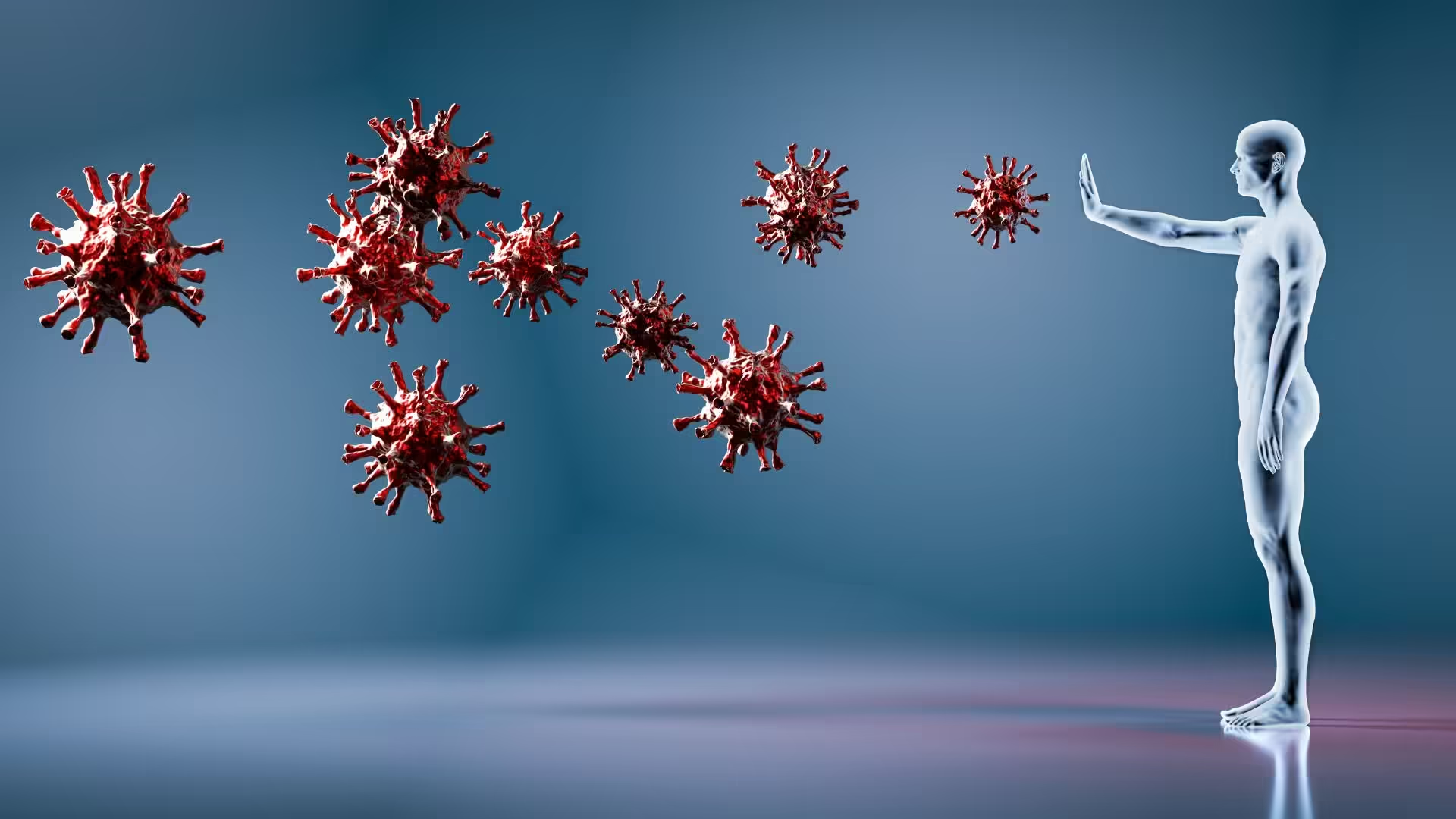Your immune system is like a vigilant security team, always on the lookout for intruders that can harm your body. But how does it know what to target? Understanding this process not only helps you appreciate your body’s natural defenses but also empowers you to take better care of your health.
The Immune System’s Watchful Eye
Your immune system’s main job is to distinguish between what belongs in your body and what doesn’t. This distinction is crucial because if it gets it wrong, you could either be defenseless against harmful invaders or end up with autoimmune diseases where your immune system mistakenly attacks your own cells.
But how does it recognize pathogens like bacteria, viruses, and fungi? It all starts with something called antigens. These are unique molecules found on the surface of pathogens. Think of antigens as fingerprints—no two pathogens have the exact same antigen, which makes them identifiable.
The Role of White Blood Cells
White blood cells (WBCs) are the soldiers of your immune system. When they encounter a cell, they check its surface for antigens. If the antigen doesn’t match the “self” profile of your body’s own cells, the WBCs assume it’s an intruder.
A type of WBC called a macrophage acts like the first responder. It engulfs the pathogen and breaks it down. This process doesn’t just eliminate the threat; it also sends a signal to other immune cells, like T-cells and B-cells, to ramp up the attack.
For example, imagine you get a cut on your skin. Bacteria from the environment can enter your body through that wound. Almost immediately, macrophages in the area recognize the foreign antigens and spring into action, gobbling up the bacteria. They then present pieces of the bacteria (antigens) to T-cells, which help activate B-cells. These B-cells produce antibodies—proteins that specifically target the invaders for destruction.
Memory: The Immune System’s Secret Weapon
One of the most fascinating aspects of the immune system is its memory. Once your immune system has encountered a pathogen, it creates a memory of that specific intruder. This memory is stored in memory cells, which can recognize the pathogen if it ever shows up again. That’s why, in most cases, you don’t get the same illness twice.
Vaccines take advantage of this memory system. By introducing a harmless piece of a pathogen (or a weakened version of it) into your body, vaccines train your immune system to recognize the real thing without making you sick. This way, if you’re ever exposed to the actual pathogen, your immune system can respond quickly and efficiently.
Real-Life Example: The Flu
Every year, flu season brings new strains of the influenza virus. Your immune system might recognize some parts of the virus from past infections or vaccinations, but if the virus has changed significantly, your immune system will need to identify it as a new threat. This is why flu vaccines are updated annually—to help your immune system stay ahead of the ever-evolving virus.
How Can You Support Your Immune System?
Knowing how your immune system identifies and fights pathogens is the first step. But how can you ensure it stays in top shape?
- Eat a Balanced Diet: Nutrients like vitamins C and D, zinc, and antioxidants play a vital role in supporting immune function.
- Exercise Regularly: Moderate exercise can boost your immune response.
- Get Enough Sleep: Lack of sleep can weaken your immune system, making you more susceptible to infections.
- Stay Hydrated: Water helps in the production of lymph, a fluid in your circulatory system that carries white blood cells and other immune cells.
- Manage Stress: Chronic stress can suppress the immune system, so finding ways to relax is essential.
Take Action
Your immune system works tirelessly to protect you from harm. Now that you understand how it identifies and responds to pathogens, take proactive steps to support its function. Incorporate healthy habits into your daily routine and be mindful of what your body needs to stay strong. Remember, a well-prepared immune system is your best defense against illness.
By connecting the complex workings of the immune system to your everyday life, you can better appreciate its importance and make informed choices that benefit your health. So, what changes will you make today to support your immune system?
Expand Your Vocabulary
- Pathogen
- Meaning: A pathogen is a microorganism that causes disease, such as bacteria, viruses, or fungi.
- In Context: In the article, pathogens are described as intruders that the immune system needs to identify and eliminate. In everyday English, you might hear about pathogens when discussing illnesses or public health. For example, “Washing your hands regularly can help prevent the spread of pathogens.”
- Antigen
- Meaning: An antigen is a molecule found on the surface of pathogens that triggers an immune response in the body.
- In Context: Antigens are like fingerprints that the immune system uses to recognize invaders. In everyday use, you might encounter this term in discussions about vaccines or allergies. For example, “The body produces antibodies in response to specific antigens.”
- White Blood Cells (WBCs)
- Meaning: White blood cells are cells in the immune system that help protect the body against infections and foreign invaders.
- In Context: WBCs are described as the soldiers of your immune system, always on patrol. In everyday language, you might hear about WBCs when discussing health or blood tests. For example, “A high white blood cell count can indicate an infection.”
- Macrophage
- Meaning: A macrophage is a type of white blood cell that engulfs and digests pathogens and other foreign particles.
- In Context: In the article, macrophages are referred to as first responders that eliminate threats. In everyday use, the term is often used in medical or biological discussions. For example, “Macrophages play a key role in the body’s defense against infections.”
- T-cells
- Meaning: T-cells are a type of white blood cell that play a central role in the immune response by identifying and destroying infected cells.
- In Context: T-cells help coordinate the immune response. In everyday language, you might come across this term when discussing the immune system or specific diseases. For example, “T-cells are crucial in the fight against viruses.”
- B-cells
- Meaning: B-cells are white blood cells that produce antibodies, which target and neutralize pathogens.
- In Context: B-cells are described as the cells that produce antibodies to combat pathogens. In everyday use, this term is often mentioned in the context of immunity and vaccinations. For example, “B-cells help your body remember pathogens it has encountered before.”
- Antibodies
- Meaning: Antibodies are proteins produced by B-cells that specifically target and neutralize foreign invaders like bacteria and viruses.
- In Context: In the article, antibodies are portrayed as the body’s targeted defense against pathogens. In everyday language, antibodies are often discussed in relation to immunity or illness recovery. For example, “Antibodies in the blood indicate that you’ve been exposed to a virus.”
- Immune Memory
- Meaning: Immune memory refers to the immune system’s ability to remember past infections and respond more effectively to future encounters with the same pathogens.
- In Context: The article highlights immune memory as a key to faster recovery from familiar diseases. In everyday use, this concept is discussed in relation to vaccinations and immunity. For example, “Thanks to immune memory, you don’t usually get chickenpox twice.”
- Vaccine
- Meaning: A vaccine is a substance that stimulates the body’s immune response to a specific pathogen, helping to prevent illness.
- In Context: Vaccines are described as training tools for the immune system. In everyday conversations, vaccines are a common topic in discussions about public health and disease prevention. For example, “Getting vaccinated helps protect not only you but also those around you.”
- Immune Response
- Meaning: The immune response is the body’s defense reaction to foreign invaders like pathogens, involving various cells and mechanisms.
- In Context: The article discusses the immune response as the overall process of identifying and eliminating pathogens. In everyday English, this term might be used when talking about how the body reacts to infections or vaccinations. For example, “A strong immune response can help you recover quickly from a cold.”
Let’s Talk
- What steps do you currently take to support your immune system, and how can you improve your habits to boost its function?
- This question invites you to reflect on your daily routines and consider ways to enhance your immune defense, making the article’s information actionable.
- How does understanding the role of white blood cells and antibodies change your perspective on vaccines and their importance?
- This encourages you to think deeper about the science behind vaccinations and their role in public health.
- Have you ever noticed how quickly or slowly your body recovers from illness? How might the concept of immune memory explain this?
- This prompts you to connect the idea of immune memory to your personal experiences with health and recovery.
- In what ways can knowledge about the immune system’s pathogen identification process influence how you approach staying healthy during flu season?
- This question is designed to help you apply the article’s insights to real-life scenarios, such as protecting yourself during flu season.
- What are some misconceptions you might have had about the immune system before reading this article, and how has your understanding evolved?
- This encourages you to critically evaluate your previous beliefs and appreciate the new information you’ve gained.
By engaging with these questions, you can deepen your understanding of how your immune system works and reflect on practical steps to maintain your health. Share your thoughts with others or discuss these topics with friends and family to broaden your perspective and continue learning!










0 Comments